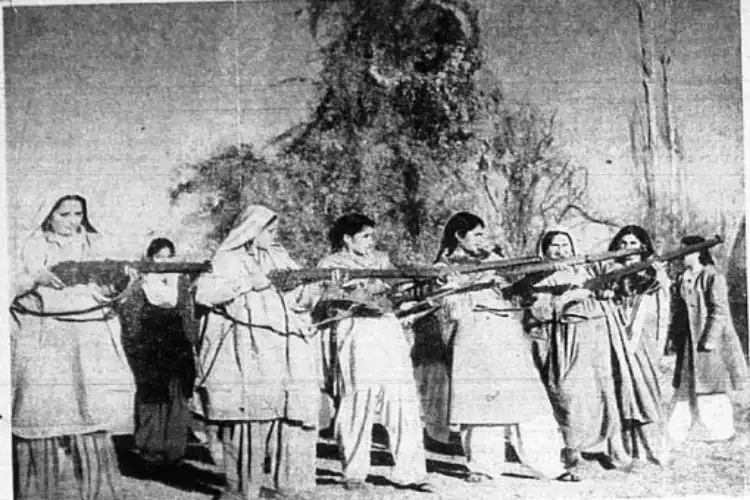
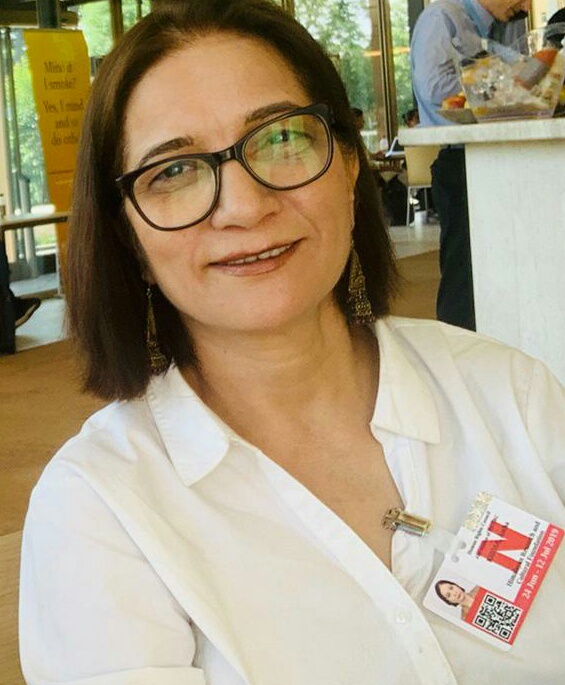 Aasha Khosa
Aasha Khosa
It’s a family story. As a child, I learned that a handsome relative of mine had spurned his second wife (the first one died) for years because she delivered their son in October 1947. Perhaps Mr. Handsome was still in love with his first wife, but he declared his newborn was “cursed” as his arrival had brought “Kabali raid" to Kashmir.
This common reference to what was the first hybrid war waged by the then just-born state of Pakistan on Kashmir, the Muslim-majority country of Dogra-Hindu Maharaja Hari Singh, continued to be part of Kashmiri folk memory till very recently. Back then, Muslims of Kashmir did not seem inclined to join an exclusively Muslim nation. Kashmiris saw themselves as followers of Sufis like Sheikh Noorudin Noorani and didn’t understand why Muslims need a new nation.
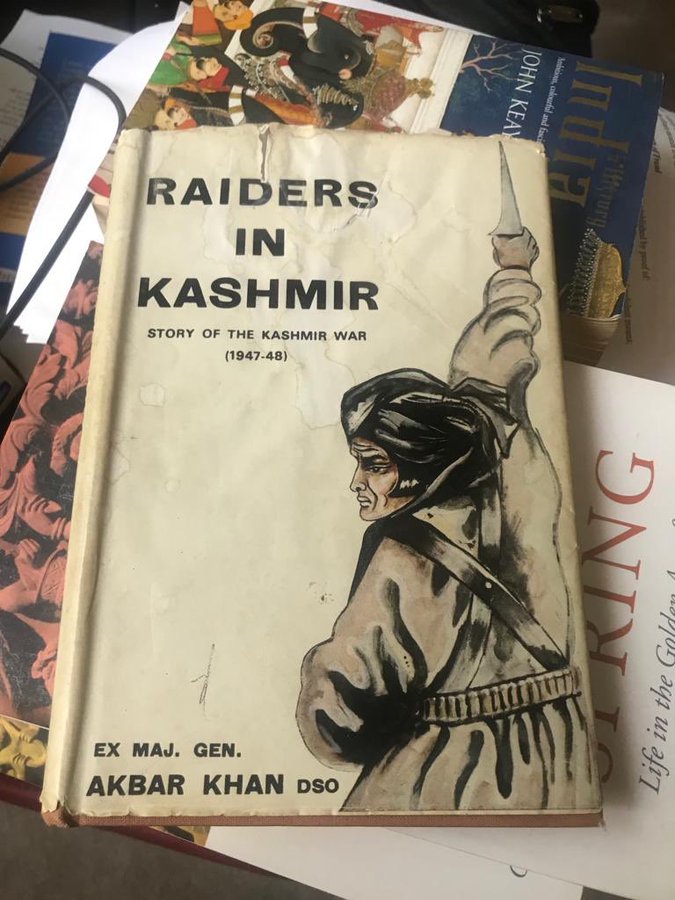
Pakistan Army officer's book on Kabali Raid in Kashmir
Their beloved leader Sheikh Mohammad Abdullah was in awe of Jawahar Lal Nehru and Mahatma Gandhi. He even changed the name of his party J&K Muslim Conference to a secular-sounding J&K National Conference and famously made Pakistan’s founder Mohammad Ali Jinnah beat a hasty retreat from the borders. That was the time Jinnah was trying to come to seek support of Kashmiris for the Muslim League's agenda of a separate country.
The Kabalis (tribesmen of NWFP, mostly ex-servicemen) were armed with basic guns and grenades and oodles of ‘Muslim pride.’ They were briefed by the Pakistan Army about the plan and were out to overrun the Maharaja’s state which had a small army. In the meanwhile, Hari Singh and his Kashmiri Pandit Prime Minister Ramachandra Kak were secretly planning to create a Buffer State between two domains of India and Pakistan and pitch their land as the Switzerland of the East.
Kabalis plundered their way into Baramulla and beyond. Historians have written records of the lashkar (Army of fighters) burning the homes of Hindus and Sikhs, raping and killing women including Christian nuns in Baramulla’s Convent school. The unbridled ‘army of Kabalis was like hungry wolves who indulged in loot in homes abandoned by fleeing families.
No wonder my grandmother and her peers always blamed us for recreating the scene of a “Kabali loot” whenever we, as children, made our room messy. Also in the Kashmiri lexicon, anyone facing a tragedy was referred to as facing the situation akin to the one created by the Kabali raid.
Kashmiri both Hindus and Muslims took pride in their heroes who sacrificed their lives fighting the Kabalis with guns and the human spirit. Today’s generation of Kashmiri may hardly believe that both Hindus and Muslim youth – men and women – formed a peace brigade. Armed with wooden guns, they marched on the streets of Srinagar daring the enemy with the slogan, Hamlavar Khabardar, Hum Kashmiri hein Tayyar (Attacker, beware, we, the Kashmiris, are ready to take on you).
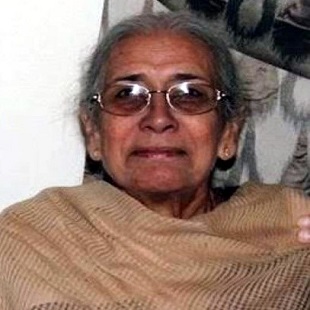
Krishna Misri (Facebook)
Krishna Misri, then Krishna Zaroo was all of 14 years when Pakistan launched “Operation Gulmarg” to wrest Kashmir from Maharaja. She along with her elder sisters Kamala and Indu and their only brother Pushkar Zaroo volunteered to join the National Militia against the raiders.
She is probably one of the few surviving volunteers of the women’s brigade. They received basic training in arms handling and were asked to march on the streets of Srinagar where panic was rife due to the arrival of refugees from north Kashmir, and the total collapse of the administration. Pushkar was martyred in Tangdhar while fighting the Kabalis.
A Delhi-based AIR producer has not been able to dislodge from her heart the pain her mother experienced following the Kabali raid. At that time, her mother's father was a forest officer. The Kabalis sought directions from him and asked him to board their jeep. The family never saw him again.
Some four decades later, my friend in the AIR, was a school-going girl when she lost her father to the bullets fired by terrorists trained by Pakistan in the early nineties. The family continues to live helplessly through the trauma of losing their breadwinner.
Unfortunately, these stories remained in the collective memory of Kashmiris for two generations and were, perhaps, the reason why Pakistan never made further attempts to wrest Kashmir through its forces.
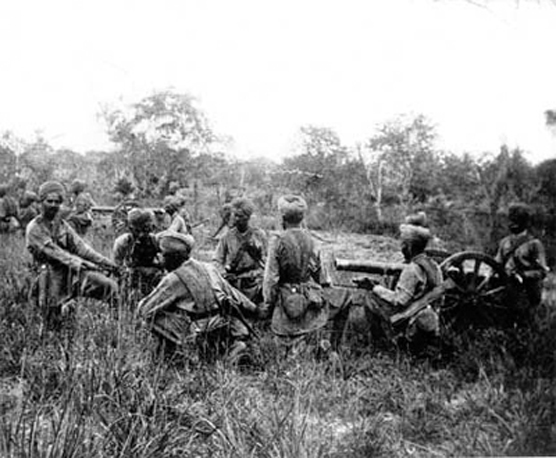
Indian Armymen taking position against Kabalis near the Srinagar Airport
Apart from this, the lack of popular support during Operation Gulmarg for Kabali raiders was shocking for Pakistan. For this reason, Pakistan never fulfilled the first condition of the United Nations Security Council resolution on holding a plebiscite in Jammu and Kashmir as its rulers had realized that it would not get the votes of Kashmiris. Over the years the resolution became redundant.
Then why and how did a section of the Kashmiri Muslim youth pick arms against India for Pakistan forty years later?
The answer lies in the short-sightedness of the rulers of J&K, mainly the National Conference. They conveniently pushed a narrative of Kashmir's status being an unfinished business. NC leaders were too self-obsessed to have a vision for the land and its people.
The stories of the Zaroo siblings, my friend’s grandfather, and above all of Maqbool Sherwani, a political activist, who famously misguided the kabalis in Baramulla town and delayed their march into Srinagar, were never chronicled in school syllabi.
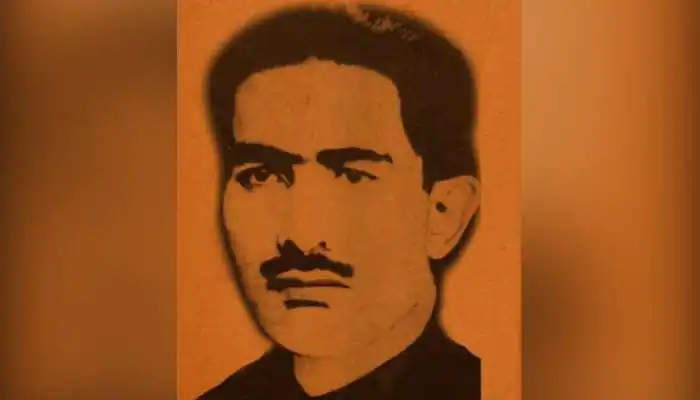
Kashmir's saviour Maqbool Sherwani
Sherwani, a handsome young man in his early thirties, was a businessman from Baramulla. He learned of stories of Kabalis' plunder and excesses while he was away from home for work. His timely intervention delayed the Kabalis' march to Srinagar airport by two days and in the meanwhile Indian army had arrived and routed the raiders. The Maharaja signed the instrument of accession on October 26.
Maqbool Sherwani had saved Kashmir from going to Pakistan but he was never given the deserving status of a hero. A small memorial to him was razed by the terrorists returning from Pakistan and has since been rebuilt by the Army. His family lived in fear of being targeted by terrorists and maintained a low profile never flaunting their connection with the hero of Kashmir.
The future generations would never get to read the stories of real heroes of Kashmir, for nobody built memorials for them. The Kashmiri children of today have no idea of the unity of Hindus and Muslims of Kashmir in defending their land against the raiders, and Kashmiri women – Hindus and Muslims- picking guns and staging peace marches on the streets of Srinagar to instill confidence among the people.
ALSO READ: Sherwani, Lion of Baramulla, who saved Kashmir
In the late eighties, some of the Kashmiri youth fell to the propaganda of jihad. Pakistan had tested and tried this formula of using jihad to convert the children of Afghan refugees in their country into Taliban and spawning a series of jihadi movements across the globe. They foisted the same on the minds of disgruntled Kashmiri youth.
Hope the Indian State learns lessons and does not allow any leader of a political party to tweak historical facts again.
